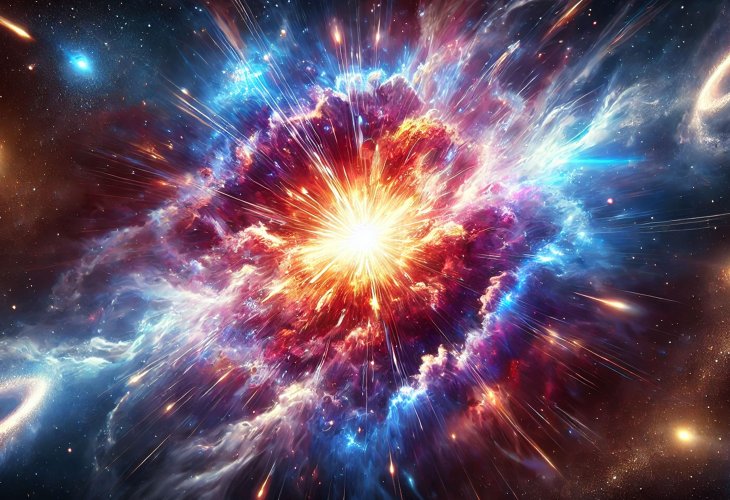In Search of God
The Expanding Universe: How Modern Science Discovered the Moment of Creation
From Einstein’s equations to Hubble’s galaxies and the Big Bang, discover how the universe’s expansion proved it had a beginning, just as the Torah describes

The expansion of the universe is one of the most profound scientific discoveries of the last century. It conclusively disproved the ancient Greek philosopher Aristotle’s atheistic theory that the universe had always existed eternally. If the universe is expanding, it means that at one point, it must have been much smaller, until it began from a single moment of creation. Today, scientists call that moment the Big Bang. In the Torah, it is known as the act of Creation.
The Astronomer Who Saw the Universe Move
In 1913, a young astronomer named Vesto Slipher, working at the Lowell Observatory in Arizona, decided to study a mysterious patch of light in the night sky. He soon discovered it wasn’t a nebula, as was thought, but a galaxy, later identified as Andromeda.
To his astonishment, Slipher found that Andromeda was moving away from Earth at a speed of over one million kilometers per hour.
When he examined nearby galaxies, he found something even more shocking: they were all moving away from us, at tremendous speeds.
Over the next decade, Slipher devoted himself to studying this strange phenomenon. By 1925, he had documented 42 galaxies, all receding from Earth. He had no explanation for why the universe seemed to be expanding.
Einstein’s Equations Hint at Expansion
Meanwhile, in Germany, Albert Einstein developed his General Theory of Relativity, published in 1916. The scientific world was amazed — but a Danish mathematician named Willem de Sitter noticed something odd. In 1917, he wrote to Einstein: “Your equations will only work if the universe itself is expanding — if all its parts are moving away from each other.”
In 1922, Soviet mathematician Alexander Friedmann reached the same conclusion: If Einstein’s equations were correct, the universe must be expanding in all directions.
Because of World War I, neither de Sitter in Denmark nor Friedmann in Russia knew that Slipher in America had already observed galaxies doing exactly that.
Einstein’s Reluctance to Accept a Beginning
After the war, scientists shared their findings with Einstein, but he resisted the idea of an expanding universe for philosophical reasons. He disliked the implication that the universe had a beginning, and therefore, possibly a Creator.
To avoid this conclusion, he added an artificial term to his equations — the “cosmological constant”, designed to force a static universe.
In a letter to a friend, he wrote: “I have not yet fallen into the hands of the priests.” And to de Sitter: “The idea of an expanding universe irritates me.”
But evidence continued piling up.
Hubble’s Proof: The Expanding Universe
In 1925, American astronomer Edwin Hubble published the results of an enormous survey mapping galaxies up to 100 million light-years away. His conclusion was clear and stunning: every galaxy is moving away from us.
Faced with overwhelming evidence, Einstein finally admitted that his “cosmological constant” had been the biggest blunder of his career.
The Final Proof: Cosmic Background Radiation
The decisive confirmation came in 1965. Physicists Arno Penzias and Robert Wilson accidentally discovered a faint background noise that filled the sky — the cosmic microwave background radiation.
Years earlier, scientists had predicted that if the Big Bang theory were true, the original burst of creation should have left behind a residual glow, detectable today as radiation at a temperature of about 3 degrees above absolute zero.
When Penzias and Wilson found radiation exactly matching that prediction, the debate was over. It was the final nail in the coffin of the “steady-state” theory that claimed the universe had no beginning.
The Big Bang Revolution swept through the scientific world.
Even the Skeptics Conceded
At the time, the Soviet Union — a proudly atheistic, communist superpower, resisted the discovery. Its scientists proposed alternative explanations, but none held up against the evidence.
Eventually, even they had to accept it.
The conclusion was inescapable: The universe had a beginning.
That realization brought modern science one step closer to acknowledging Creation itself.

